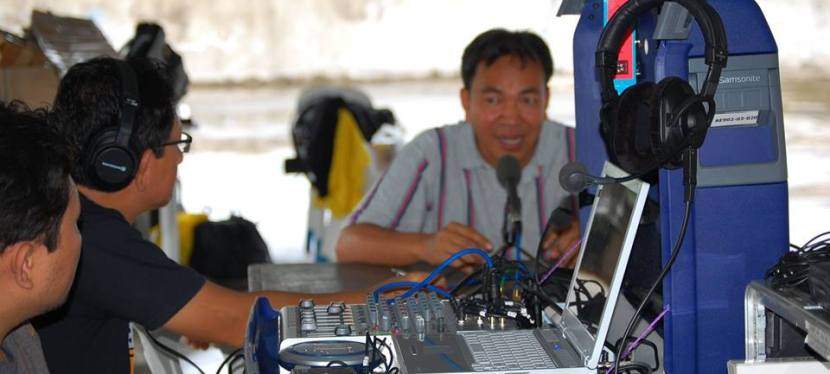There’s been a LOT on social media regarding the NSW Health Care Reform Bill 2019.
In NSW, ‘unlawful abortion’ has been a criminal offence in NSW since 1900 under the Crimes Act. In NSW the law allows you to have a ‘lawful’ abortion if the doctor believes your physical or mental health is in serious danger by continuing the pregnancy. The doctor takes your social/family situation, finances and health into consideration when making this decision.
Today, the NSW parliament is set to vote on a bill decriminalizing abortion after an impassioned debate from both sides of the issue.
Is it disturbing that the framework for abortion was still found in the state’s Crimes Act? That in making this major life decision, women and their doctors have to do so with the threat of being charged with a criminal offence?
Some say yes. Others say no.
Those opposing the decriminalization bill say they want to speak “on behalf of those who cannot speak for themselves”. Those opposing are concerned that the bill allows abortions to occur in very late stages of pregnancy, in circumstances where there is no medical need, on the advice of two medical practitioners. Those opposing say pregnant people would demand abortion on demand up to the day of birth.
Sydney barrister Larissa Andelman, president of the Women Lawyers’ Association of NSW, said “there is, in fact, more oversight by medical practitioners after 22 weeks” under the proposed law, and “that’s actually more restrictive than it is today”.
In Australia, 0.7 per cent of all terminations take place after 20 weeks. They are usually done due to complications, meaning that the foetus is not compatible with life, or in situations where due to difficult circumstances the pregnant person has not had access to suitable health care earlier in the pregnancy.
I’ve written about my experience with abortion prior to becoming a Christian. Back then, like now, I am concerned about the lack of grace too often displayed in the debate. Back then, like now, I am concerned how churches hold up their doctrine – the sacredness of life – but fail to develop anything useful in practice.
Christian, Muslim and Jewish religious leaders issued a statement that included:
“Abortion does not need to be further encouraged. A pregnant woman requires help and support, not a quick answer which will ultimately harm her. The bill does nothing to provide real choices for women who feel they have no option other than abortion.”
Yes, pregnant women do require help and support. Intimating abortion is a ‘quick answer’ for a pregnant woman – or her family – is graceless. Such decisions weigh heavily and cause harm, grief and pain. But writing that the bill does nothing to provide real choices for women, who feel they have no option other than abortion, mixes contexts. Champion for more choices, please do.
But that’s not what this bill is about. The bill is about decriminalizing this one choice.
Is it a narrow and awful choice for a woman or family? Yes. So, instead of all the noise and ‘thou shalt not!’ how are our churches championing for additional, real, ongoing, supportive choices and programs? How are we touting them as real and vital options? Making pro-life look attractive compared to the “quick answer”?
I don’t have the answers, just observations. Perhaps conversation starters.
Over on the Ministry of Sex, I wrote about the young woman so shamed by her church for falling pregnant outside of marriage – and who chose to keep her child – she attempted suicide. If we are unable to help the parent who is brave enough to honour the sacredness of life, why on earth would we imagine a woman conflicted and overwhelmed by pregnancy – faced with the darkest of choices – would feel secure approaching a pastor for help and advice?
There are highly vocal opinions being displayed in Christian circles. These opinions are being written – in the majority – by men. They appear to very certain of the right and the wrong. The black and the white.
They seem to intimate that if you do not sit clearly in the clear cut choices, you are lacking in Christian conviction. But this is not clear cut. It is not so black and white as they like to write. There is grey.
Tread carefully in the grey, my brothers. Tread carefully.
There is shame and there is sin in the grey.
In the grey, there is also a confusing purity sexual ethic that likely contributes to unexpected pregnancies in Christian unwed couples. Why? Because these couples daren’t think about having pre-meditated sex, which therefore means no contraception, and then, “oops, well his penis just slid into my vagina and, oh no, I’m pregnant” outcomes. Not pre-meditated sexual sin, no siree. An accident.
So then, in the grey, uncertain of the support they’d receive, fearful of the shame if they admit it, abortion becomes an option.
In the grey, behind those 0.7 per cent of all terminations taking place after 20 weeks, are families with rare genetic conditions. Those who are not in a position to care for a child with a genetic or terminal illness. Those without the privilege of secure housing. Or a partner. Without the privilege of a high or stable income, paid maternity leave, long service leave, and pre-existing private health cover.
In the grey, are the negligible adoption rates for children with disabilities, let alone those with a terminal illness.
In the grey, there are women who have been pressured into terminations by abusive spouses.
It’s hard in the grey. So let’s lean into the space and have graceful, loving, challenging, respectful and open-hearted discussions.
What would make the pro-life choice attractive?
You see, I would have sperm-proof contraception and a sex-positive sexual ethic in church, rather than young people hiding in shame over thinking abortion is their only choice.
I would rather see the improved education of our young people about sex. Especially our Christian young people. I had sex before marriage as I wasn’t a Christian back then. But I am not ‘lucky’ that I did not fall unexpectedly pregnant.
I was informed. Not simply due to condoms, pills, diaphragms and spermicide creams. But because I knew my cycle, knew exactly when I ovulated and had a healthy sex-positive awareness of myself, my body and consent. Informing your church youth about sex and how not to get pregnant doesn’t cause a rush of pre-marital sex. In fact, research shows the opposite.
In the grey, think not simply about purity, or impurity. Get everyone understanding the rich theology of absolute purity (blog on its way on this one!).
In the grey, have real conversations in church about what an unwed pregnancy looks like in your community. Would the single mother be loved and supported? Or would she feel shame pushing in the stroller? How would the single Father expect to be treated?
In the grey, a young woman on your youth team turns up in front of you this Sunday, confronted and grieved by all that was on social media this week, admitting through sobs that she’d chosen termination because she had been date-raped – and she’d been so ashamed by the notion she was no longer pure for Christ she couldn’t breathe a word. How would you respond?
In the grey, there is the 15-year-old girl who bravely opts for adoption. The young man who is the father wants no responsibility. She finds out at 22 weeks a terrible in utero genetic condition that means the baby would not be adopted. What would you say to her?
As I wrote in my other blog, there are Christians who make huge decisions to ignore their Doctors and proceed with dangerous, life-threatening pregnancies with uncertain outcomes. Yet, despite that, when they prayed over the other choice – a termination offered by Doctors as ‘kinder’ – they felt unable to share how tempting it was with their pastors.
There is pain and there is doubt in the grey.
As this bill is debated, focus not only on the black and white. Focus also on the grey. How can you offer compassion and pro-life choices hand-in-hand and do it beautifully?
As we do, let there be forgiveness in our churches and demonstration of the Gospel of grace. Come up with wild and radical plans to challenge the “easy choice”. Host mass teen sleepovers with robot babies in your churches to show just how much work a young baby is. When young people are venturing into unprotected sex early, seeking love and affection in all the wrong places, can we show them a more loving, fulfilling way?
Like Jesus, let us lean into the grey spaces with love and compassion, not judgment. Let us all take the time to listen.
This is not a space for extremes – from either side. Our media and culture are quick to trumpet that an unplanned pregnancy equals your life is over! That is not the case.
Certain church messaging about abortion drowns Jesus and compassion in religiosity. That ought not to be the case either.
Termination is not the only option. But if it has been your experience, know Jesus offers acceptance, love, forgiveness and hope.
If you are facing an unplanned pregnancy and wish to talk to someone about your choices with compassion and without judgement, contact http://www.diamondpregnancy.com/ or call them on (02) 8003 4990.
Thank you.










